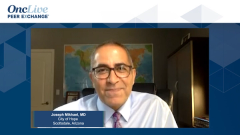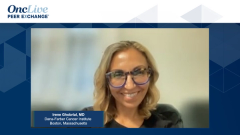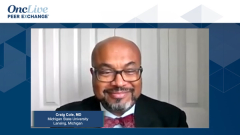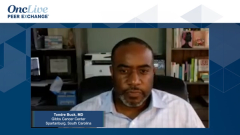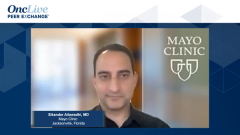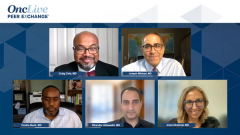
Improving Access to Specialty Care in Multiple Myeloma
Experts on multiple myeloma share comprehensive insight on how to build better access to specialty care for patients of racial and ethnic minority groups.
Episodes in this series

Transcript:
Joseph Mikhael, MD: Maybe I can follow it up Dr Tondre with you, and some of the work you've done. You shared that really touching piece to me about I've been trained in Mississippi and the disparity there. How do we start to overcome some of that barrier to getting access to those large centers, which is you’ve described as not only geographic. We learned, for example, during the pandemic that sadly, the digital divide sometimes made it worse where some of these individuals didn't have access to WiFi and internet to be able to interact with their team, or with a team or with a medical team. Although paradoxically, there have been a couple of studies that are showing that now that more centers are allowing virtual consults, there are people who historically couldn't travel into a center who may be able to be seen virtually. But what are your thoughts about this? And what, we as a group here in our audience today, can think about solutions to access to specialized centers?
Tondre Buck, MD: It's, of course, a complicated question. But the work that you're doing now, with IMF, it is a 2-prong approach to me. You have to educate the community, like you're doing now. But also, it goes deeper than that. Because I think the underlying issue is biasness which Craig touched on earlier here. We have to go back to medical school, and we have to go back to the residency. I think about go to back to fellowship. We have to think about the way we've been asked board questions. Epidemiology, and then if you see a Black patient who is age this, and they got this, we need to start looking into these things more. Now, in terms of access to care, what we need is 2,000 docs like us, you know what I mean? Who are passionate about this disease, and about how it disproportionately affects African American and Latino Americans also, and we want to want to do something about it. And to me, with all the access we have now to Facebook and all these other things, there are a couple of approaches, of course. But to me, the most effective way has been simple. Getting out in boots on the ground, where at least in my personal experience, that's what I found to be quite effective. But you have to have myeloma dots in groups who are up to date with what's going on. Now, in my region, I'm very fortunate in that I'm in a community practice where I'm able to see only hematology patients with a great portion being myeloma patients. It's quite comforting to me to that they would call or text and used to be in the New York area of course. Or to call or text one of you guys to bounce things off you. We have folks over here in Prisma. It takes passionate individuals like us. It takes educating the community, the African American community, like you talked about earlier. Barber shops, churches, and we just have to keep pounding away as long as we're around and so we can make a dent. But it boils down to this. And it goes back to Sikander patient who took 103 days on that study to get Velcade. It takes one patient at a time. It takes them out and to call on you and say, hey, this guy hadn't got his Velcade and it’s been a month. What is going on? And that's what it boils down to. It's exhausting work. But that's what we're here for.
Joseph Mikhael, MD: Oh, absolutely. And you reflect part of what we need in the healthcare team. If I could double the social workers in this country tomorrow, I would. Because a lot of the logistics and the MAs, the others. Sometimes we think of us, and we'll have the bias and we have the things that we need to repair, and we'll come to that in a moment. But it really is those resources supporting us. Some interesting studies recently showing that within the African American community, there is as much trust for the pharmacist and the nurses there as the physician, if not more.
Transcript edited for clarity.


